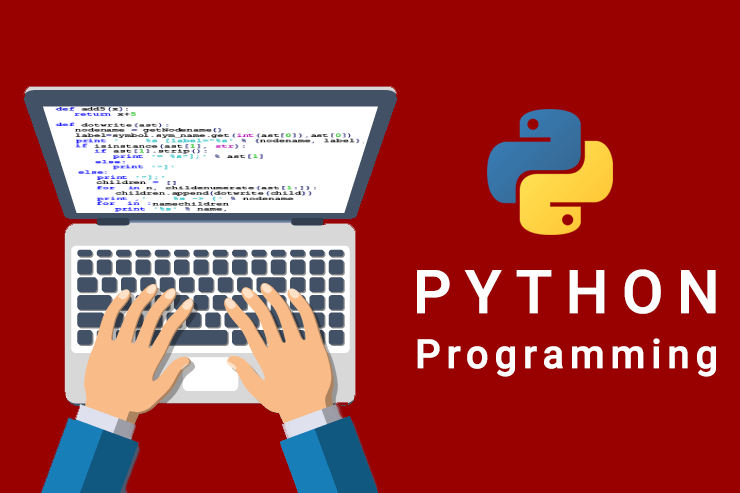7 Reasons to learn Python for Data analysis
- traininginstitutep9
- Aug 9, 2023
- 3 min read
In an era dominated by data, the ability to extract meaningful insights from vast amounts of information has become an invaluable skill. As organizations and industries rely more heavily on data-driven decision-making, professionals who possess expertise in Python for data analysis are in high demand. Among the various programming languages available, Python has emerged as a standout choice for data analysis due to its versatility, ease of learning, and a robust ecosystem of specialized libraries.
Whether you're a seasoned programmer or someone new to the world of coding, learning Python for data analysis can open doors to a realm of possibilities. In this article, we will delve into seven compelling reasons why acquiring Python skills for data analysis is not only a wise career move but also a pathway to unlocking the potential within data. From its versatile applications to its rich library support, Python for data analysis's attributes makes it a tool of choice for professionals seeking to harness the power of data for informed decision-making.
Join us as we explore the reasons that make Python for data analysis a dominant force in the field of data analysis. Whether you're a curious beginner or a professional looking to expand your skill set, understanding these factors will illuminate the path ahead and inspire you to embark on a journey of data exploration, manipulation, and discovery.

How learning Python for Data analysis could be beneficial
1. Versatility and Ease of Learning:
Python's clear and readable syntax makes it an excellent language for beginners. Even if you're new to programming, you can quickly grasp the basics and start working with data. Its simplicity reduces the learning curve, allowing you to focus more on analyzing data and less on complex syntax.
2. Robust Ecosystem of Libraries:
Python boasts an extensive collection of libraries that simplify various aspects of data analysis. Libraries like NumPy, pandas, and Matplotlib offer powerful tools for Python for data analysis manipulation, analysis, and visualization, enabling you to perform tasks efficiently and effectively.
3. Widely Used in the Industry:
Python has gained widespread adoption in industries ranging from finance and healthcare to technology and marketing. Learning Python for data analysis opens up a plethora of job opportunities and ensures your skills remain relevant in a rapidly evolving job market.
4. Seamless Integration:
Python integrates with other programming languages and tools commonly used in data analysis. Whether you're working with SQL databases, Hadoop clusters, or machine learning frameworks like TensorFlow and scikit-learn, Python can serve as a bridge between these technologies.
5. Data Visualization Capabilities:
Visualizing data is essential for communicating insights effectively. Python's libraries, such as Matplotlib, Seaborn, and Plotly, provide versatile tools to create visually appealing and informative graphs, charts, and dashboards.
6. Strong Community Support:
Python for data analysis has a vibrant and active community of developers, data scientists, and analysts. This community support means you can easily find solutions to problems, access tutorials, and collaborate with like-minded individuals to enhance your skills.
7. In-Demand Skill Set:
Proficiency in Python for data analysis is highly sought after by employers. Companies value professionals who can collect, clean, analyze, and interpret data to drive informed decision-making. Adding Python to your skill set can give you a competitive edge in the job market.
How the best Python course in Delhi can help you learn industry-relevant skills for Data Analysis
Enrolling in the best Python course in Delhi offers a direct path to acquiring industry-relevant skills for data analysis. With a well-structured curriculum, expert instructors, and hands-on projects, the Python training in Delhi delves into Python's applications in data manipulation, visualization, and statistical analysis. Through real-world scenarios, learners gain a profound understanding of data-driven decision-making processes. The Python courses in Delhi also focus on integrating Python libraries like pandas, matplotlib, and NumPy, essential for efficient data handling. By simulating industry challenges, students cultivate problem-solving abilities and a strong analytical mindset. Ultimately, the best Python training institutes in Delhi equip learners to confidently navigate the data analysis landscape, ensuring their readiness for impactful contributions in the professional realm.
In conclusion, learning Python for data analysis is a strategic step toward building a successful career in the data-driven world. Its versatility, powerful libraries, and widespread industry adoption make it an ideal choice for anyone looking to delve into data analysis. By mastering Python, you'll be equipped with the skills to unlock insights from data, contribute to meaningful projects, and stand out in the competitive job market. So, don't wait – start your journey into the world of Python for data analysis today!







Comments